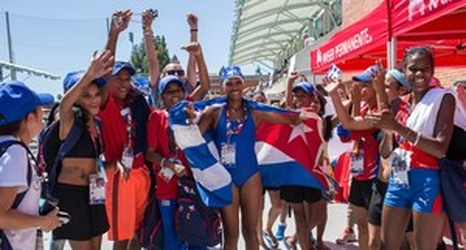CreditMonica Almeida/The New York Times
When Special Olympics athletes get their medals — and the competitions are designed so that many, many do — the music swells, they pump their fists and their parents and teammates clap and yell. At the 2015 Special Olympics World Games across Los Angeles this week, the medals ceremonies went on for hours, a cascade of triumphant moments, one after another after another.
The glow has to last, because the athletes will need it when they get home and become invisible again.
This is the conundrum of Special Olympics, an organization so good at making its athletes and the public happy, so bursting with good will and smiles, that nobody has to take it seriously.
